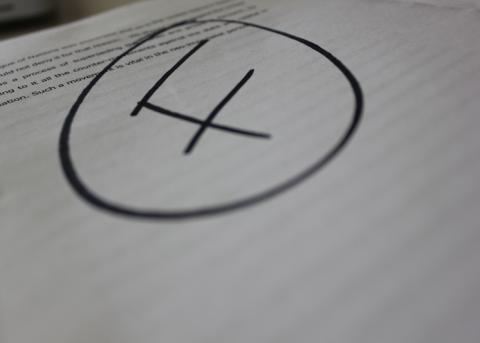Third level education from the frontline

For someone who has worked in the university sector and has been the President of the National College of Ireland, Paul Mooney’s level of ignorance as to what lecturers and professors do and the purpose of the higher education is quite remarkable. What is even more striking is that his opinion piece in the Irish Times (Inside Third Level) lacks the rigours of analysis that one would expect from an academic. Assertion, anecdote and the partial, cherry-picking of data does not constitute evidence-informed analysis.
Where is the data and its systematic analysis to underpin the conclusions drawn? Where are the international comparisons that would set Ireland in the context of other higher education systems? Where is the standardisation against staff/student ratios and funding that should be a part of such comparisons? Where is the wider contextualisation and reference to the myriad of reports on the higher education sector over the past decade?
Put simply, this is not good science or analysis; it is jingoistic playing to the gallery and would make a very good example for students as to how to produce a selective story.
Let’s get one thing absolutely straight – academic working hours are not contact teaching hours and nor should they be. The job of lecturers is divided into three main tasks: 1) teaching, 2) administration, 3) research.
Contact hours are only one element of teaching. The other elements are lecture preparation, marking, and meeting students to discuss their work and assignments. All three are time intensive. For example, meeting students one-on-one to give advice and critically appraise their work takes time, especially if you are teaching very large introductory classes. Direct classroom hours are deliberately not heavy – it is not called ‘reading for a degree’ for nothing. Students are meant to be reading the ancillary material and undertaking their assignments. Lecturers aid them in this reading and in their self-learning. The pedagogy of higher education is philosophical not sophist and nor should it ever be sophist.
Administration, related to both teaching and research, is not a trivial task and takes time to do professionally. The fact that students or the public do not see this work is neither here nor there.
Research takes time and resources. It takes a lot of reading, a lot experimentation, a lot analysis, a lot of thinking, a lot of debate and a lot of writing if it is to be rigorous, systematic and valid. It can fail. It is not something that can be done well in a few hours. If it could be done quickly and easily companies wouldn’t spend vast sums of money on it, and states wouldn’t give huge contracts to consultancy companies for it. As a supposedly seasoned researcher, Paul Mooney should know this.
The fact that Ruari Quinn, the Department of Education and the Higher Education Authority do not have a clue if lecturers are doing their job says far more about the Minister and those bodies than it does about the higher education sector.
There are four good pieces of evidence that in fact it is doing its job: first, it is producing courses that are very highly scored by external examiners, the vast majority of whom come from outside Ireland. Second, it produces graduates which the country holds up when it seeks to entice FDI to Ireland and who compete very well in the international labour market. Third, we perform very well in attracting EU research monies and in publishing research in international refereed outlets. Fourth, there is not a huge ground swell of complaint from our main customers – students. In fact, Paul Mooney produces not one bit of data that even hints that the sector is not doing its job beyond saying that contact hours align with international norms (Ireland is no exception in this regard) and a lot of bluster and conjecture.
Neither does he provide one jot of data to support the statement: “the percentage of third-level lecturers that have the ability to produce economic or socially useful research is limited.” Furthermore, such a statement belies an assumption that third level research should be instrumental in nature. Here, worth and value get hopelessly conflated. Third level research serves diverse constituencies and purposes, and so it should. Newman’s ‘The Idea of a University’ has lost none of its veracity.
He also seems to be under the illusion that there are no key performance and management indicators operating in the sector. In fact, all the third level institutions compile such data on all their activities. All teaching is externally validated. All publications and research funding applications are judged by peers. Promotion is tied to academic performance. Departments are subject to external quality reviews. Any project with research funding is subject a range of audits, including daily timesheets for many HEA and EU projects. All staff do PMDS. Regular reports are prepared for the HEA.
Academics working long, productive hours is not an exception, it is the norm. And the three-month summer break in the university sector is a myth; holiday entitlements in Maynooth are 20 days plus 9 (Christmas and Easter).
The first rule of publishing in academia is to get your facts straight and to produce an evidence-informed analysis. If Mooney’s opinion piece was a student essay, I’d give it an ‘F’. {jathumbnailoff}
Orginally published on Ireland after NAMA.
Image top: Eadaoin O'Sullivan.
